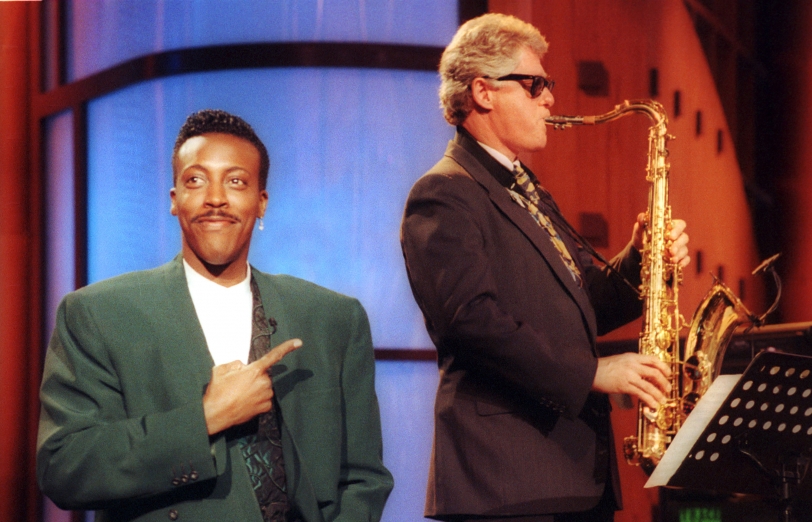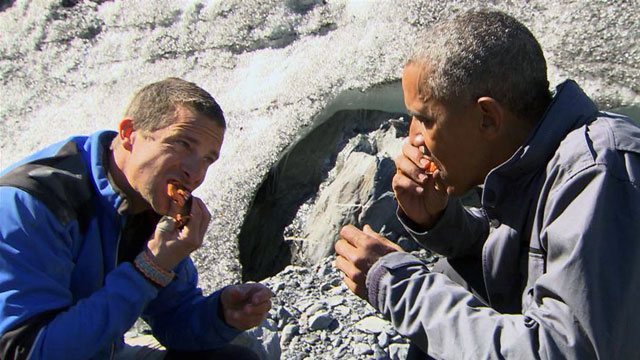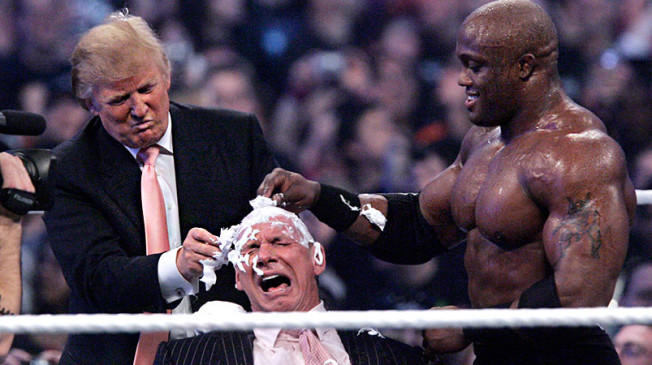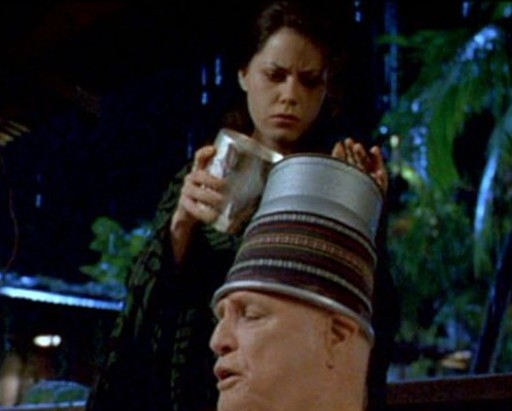Presidential used to mean roughly the same thing to the majority of Americans, Democrat or Republican. It was a code of behavior that meant that if you wanted to hold the highest office in the land it would be really helpful if you didn’t embarrass the rest of us. We were worried about the neighbors might think, so you needed to be a stuffed shirt who kept it in your pants–in public, at least. This behavior was just as important as being competent at the job, maybe more. Merely playing wind instruments in close proximity to Arsenio Hall could make you suspicious. In this Baba Booey of an election season, the word presidential has clearly come to mean something far different than it previously has.
President Obama can park himself in Marc Maron’s garage or bro it up with urine-drinking Bear Grylls and still maintain his dignity, but that trait is quaint today, almost an anachronism. It’s an extra coat of paint that doesn’t raise the value of the house, even if it’s the White House. Donald Trump’s disgusting bumfight of a campaign is more modern, resonating with a public prepared for it by our decentralized media and Reality TV landscape. For a large minority (at the minimum), his behavior is the new normal. The fly’s come undone.
In a smart New York Times essay, Wesley Morris looks for the true meaning of the word presidential. There are great observations like this one: “The Obama era is also our Hamilton moment, in which the state of being ‘presidential’ can belong to whomever we say it does.” The opening:
Of the many words Donald Trump has uttered over the last nine months — all the insightful insults and blustery boasts, all the syntax-slaying murk that sometimes boomerangs back into sense and all the hateful hate that doesn’t — last month brought a new flash of negative élan. Trump was speaking at a rally in Harrisburg, Pa., when he took stock of his own demeanor as a candidate.
“Now, my wife is constantly saying, ‘Darling, be more presidential.’ I just don’t know that I want to do it quite yet,” he told a packed, ready-to-rock house. “At some point I’m going to be so presidential that you people will be so bored. And I’ll come back as a presidential person, and instead of 10,000 people, I’ll have about 150 people, and they’ll say, ‘But, boy, he really looks presidential!’ ”
When we’re thinking about voting for president, we’re also thinking about what’s “presidential.” I never know quite what that means, except that, like the sitcom-wife version of Melania Trump in her husband’s anecdote, I kind of do. It connotes carriage and posture and intelligence. It captures dignified comportment and a degree of knowledge. It’s the ability to depict leadership, from lecterns to tarmacs. It’s partly cosmetic — is this person tall, passably fit, loosely attractive, warm? — and almost entirely presentational. It’s the seriousness a candidate has to project in order to be taken seriously, only without seeming dour or battery-operated. “Presidential” used to be something to aspire to. All of that authority, know-how, gravitas, good posture and moral rectitude — it seemed so important, so adult, so American.
But Trump has tapped into something else about “presidential”: If it’s a performance, then it can be switched on and off as needed.•




